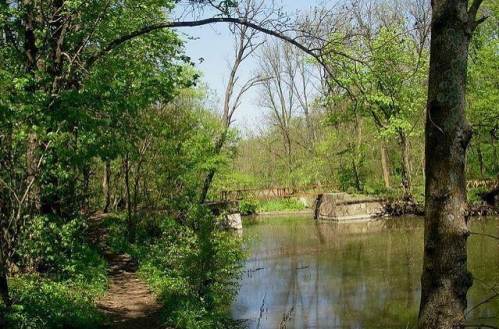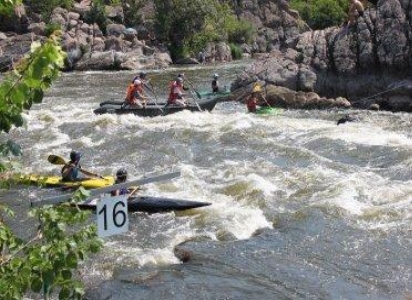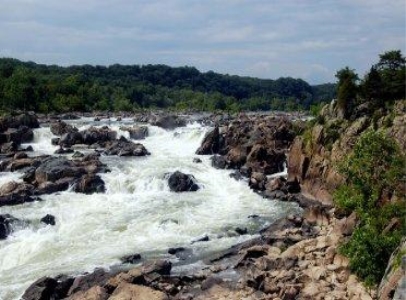"Екологія мого регіону."
Урок.
Outcomes: students can increase their knowledge of environmental topics and issues and learn how to be an active part of their communities.
Освітні галузі: Мовно-літературна; Соціальна і здоров'язбережувальна; Природнича.
Тема уроку. Екологія мого регіону.
Objectives:
- to improve students' listening, reading, speaking and writing skills;
- to revise and enrich students' vocabulary on the topic;
- to motivate them in expressing their own opinions on the topic;
- to teach students to save the environment.
Outcomes: students can increase their knowledge of environmental topics and issues and learn how to be an active part of their communities.
Освітні галузі: Мовно-літературна; Соціальна і здоров’язбережувальна; Природнича.
Resourses: Camp IKNOW Manual 2008/ Environmental Working Group. Peace Corps Ukraine
Тип уроку: урок розвитку компетентностей.
Хiд урокy:
I. NTRODUCTION
- Teacher: Look at these pictures? Where do you think they are?

|
|
|
Of course, in National Park Buzkiy Gard. Would you like to spend your summer holidays there? Today our region has become popular with eco-tourists from Ukraine and even foreigners.
By the way do you know what is eco-tourism ? Do you have any ideas?
The International Ecotourism Society defines ecotourism is 'responsible travel to natural areas that conserves the environment and improves the well-being of local people.' Ecotourism has a save-the-planet goal. Unfortunately there are very few pristine and unpolluted areas left in the world and they must be protected. Ecotourism is a travelling to natural destinations with rare flora and fauna.
Everything in the world is interconnected.
We ought to be very cautious when doing things that cannot be undone.
(Ray Bradbury ‘A sound of thunder”).
We must be responsible eco-tourists but not intruders.
- Teacher: Complete the sentences
- The eco-tourism is
- To help the environment and to learn about life in other places.
- To visit and admire nature
- To collect information about different places
2. Synonym to eco-tourism
- soft tourism
- wild tourism
- modern tourism
- A conservationist is
a) a person who wants to do something useful for our nature.
b) a person who doesn’t care about nature
c) a person who admires the beauty of nature
II. MAIN PART
Activity 1
T: As we are going to speak about the environment, let's listen to the Native American poem. Try to say what it is about.
Tapescript: Only when all the rivers have run dry
and all the fish in the sea have died
Only when all the rainforests
have been burnt down
and there is no food for the animals
Only when all the blue skies have been
killed with smoke
And the cities of the world have choked
Will the white man understand
that it's too late to save the earth.
T: So, what is the poem about?
Ss: It's about the damage we are doing to our planet. It is a warning of what might happen in the future.
Activity 2:
The teacher can ask questions, such as, ‘what will happen if the world dies?’, or
‘collapses?’
Most students will answer that humans will not be able to survive. The teacher should then guide students to realize that people’s actions can hurt the environment, and by hurting the environment people can hurt or even kill others.
Again, the teacher can ask questions such as, ‘is it allowed or even ok to kill other people (i.e. murder).’ Most students will answer ‘no.’ Again, the teacher needs to guide students to see the relationship that polluting the environment has with its affect on other people.
Activity 3: New vocabulary and material: (5 min.)
The teacher needs to introduce philosophical concepts and philosophical vocabulary. The teacher should write on the board the following words with their definitions. Match:
|
|
|
|
|
|
|
|
After these words are defined the teacher can ask for example of direct and indirect actions.
For example, the group should know that killing and stealing are (immoral) direct actions that affect other people. The teacher should then ask participants for their ideas about indirect actions; for example, how can we indirectly kill someone? After these ideas are given and written on the board, the teacher should then guide the group back to the topic of the environment.
Activity 4
«Everyone lives downriver» (20 min)
Ask for 6-8 volunteers. They will come to the front of the classroom and hold a piece of string above their heads at different intervals.
Ask the group to name different bodies of water, beginning with closest body of water to the town/community and then name other bodies of water that this first body flows into.
For example, the Synyuha flows into the Southern Buh, the Southern Buh flows into the Black Sea, the Black Sea into the Atlantic Ocean.
The participants holding the string will represent these different bodies of water. The rest of the group will be given pieces strips of paper and will write different environmental problems on these strips of paper, either with words or pictures (example, litter can be drawn as a soda bottle). These participants will then fasten the strip of paper to a paperclip. Students will then fasten their “problems” to the string, near the participant who represents the body of water in their community.
After a few minutes of discussion about each problem, begin to move the problems, written on the pieces of paper, down the string to the other bodies of water.
Discuss with the class how our pollution then affects the well being of other communities. Improvise and say, “In this community all the animals will die who drink from the source of water,” or, “All plants will die in another community downstream.”
This can also be drawn by participants and added to the string. After a while, participants will begin to realize that their actions in their town directly and indirectly affect others outside their communities.
III. SUMMARIZING
1). Teacher: To summarize our work complete the sentences
1. The eco-tourism is the best opportunity to….
2. You can help…
3. You can develop……..skills.
4. You can choose to travel by….. or by……
5. You will learn how……
6. The group activities will help you…..
2). Your home task: Find out information about different environmental projects in our region and write the article about them into the school newspaper.


про публікацію авторської розробки
Додати розробку


